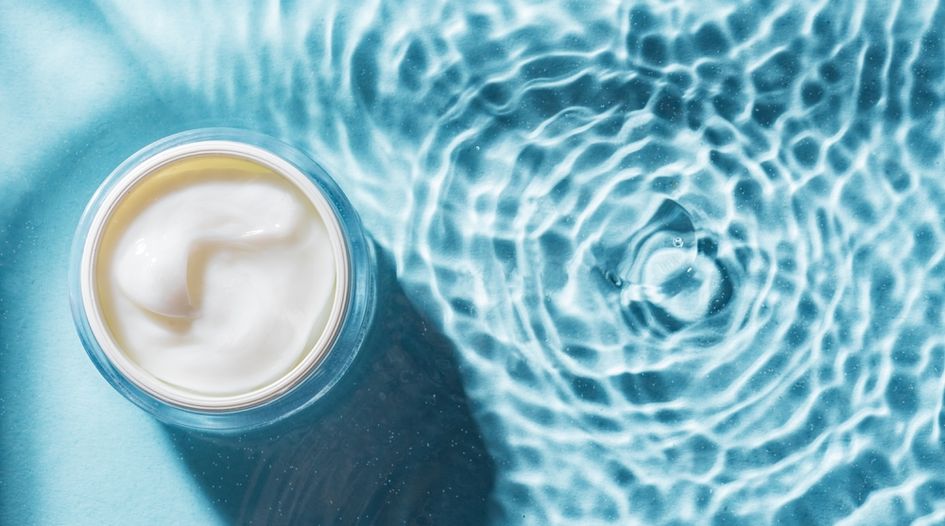Delhi High Court denies interim injunction to Lotus Herbal in product branding dispute

The Delhi High Court has denied an interim injunction in a dispute over the mark LOTUS for face wash. While there was evidence of trademark infringement, the defendants took recourse to a statutory exception (Lotus Herbals Private Limited v DPKA Universal Consumer Ventures Private Limited and Ors, CS/Comm 454/2023).
Case details
The plaintiff Lotus Herbals is a prominent cosmetic and beauty brand in India that has sold over 1,000 products under the mark LOTUS since 1993. It also owns several registrations for LOTUS and variants thereof in Classes 3 and 5.
The defendant 82°E – a high-profile beauty brand co-founded by one of India’s leading female actresses Deepika Padukone – launched a face cleanser named ‘Lotus Splash’ in late 2022.
Lotus Herbal claimed that 82°E’s Lotus Splash cleanser infringed its trademark rights and issued a cease-and-desist notice. However, 82°E continued to use the impugned mark, which led Lotus Herbal to subsequently file the suit for trademark infringement and passing off of its mark LOTUS.
As Lotus Splash contains the word ‘lotus’, Lotus Herbal argued that confusion was bound to occur among customers because the word was being used for similar goods. However, 82°E argued that it was merely using ‘lotus’ in a descriptive sense rather than a trademark sense, as the product was a face cleanser that contained lotus extract.
Several advertisements were placed on record to further the argument that ‘lotus’ in Lotus Splash was being used to describe product characteristics rather than function as a brand. Further, 82°E stated that the nomenclature scheme that it had adopted for its entire product range described the main ingredient of each product in the first word, such as Ashwagandha Bounce, Turmeric Shield, Licorice Beam and Patchouli Glow. On each product, the 82°E mark prominently featured.
The dispute and applicable legislation
Lotus Herbal relied on precedent from Zydus Wellness Products v Cipla Health to argue that for a descriptiveness claim to succeed, the entire mark – not merely a single element – must be descriptive. Even if ‘lotus’ were to be treated as descriptive, Lotus Splash could still be viewed as suggestive; customers could view it as a source identifier and not merely an indicator of the product’s ingredients.
Further, it could be argued that 82°E’s applications to register ‘Ashwagandha Bounce’, ‘Licorice Beam’, ‘Patchouli Glow’ and ‘Turmeric Shield’ as trademarks indicated an intention to develop the series of products as brand names, including the face wash Lotus Splash. This was further shown by the description on the product, “conditioning cleanser with lotus and bioflavonoid”, which could be viewed as the real descriptor. Further, an invoice referring to the product as “Lotus Splash conditioning cleanser” without any mention of 82°E was also submitted. Although, 82°E had not applied for registration of the mark ‘Lotus Splash’, and this was not in dispute.
Two statutory provisions are applicable to this case. The first is Section 29(2)(b) of the Trade Marks Act 1999, which deals with infringement in cases where similar marks are being used for similar or identical goods. The court agreed that the LOTUS mark and product name Lotus Splash were indeed similar, as were the goods thereunder. Further, Lotus Herbals’ registered mark LOTUS was the dominant part of 82°E’s product Lotus Splash and it was possible that a consumer might associate the latter’s product with the former. Thus, there was a prima facie likelihood of confusion and a case of infringement could therefore be made under Section 29(2)(b).
However, the statute lists certain exceptions to infringement. For example, Section 30(2)(a) states that a registered trademark is not infringed where:
the use [of the rival mark] in relation to goods or services indicates the kind, quality, quantity, intended purpose, value, geographical origin, the time of production of goods or of rendering of services or other characteristics of goods or services.
Court decisions
According to the court, there was no dispute over the fact that one of the key ingredients in the face wash is lotus extract. This is underscored by the description on the bottle. A consumer’s attention would be equally drawn to the name Lotus Splash and the descriptive explanation below it, and this would convey that the word ‘lotus’ had been used to indicate a characteristic of the product. The court stated that:
the indicator, in an indicative mark, may be one of the words forming part of the mark, but so long as the word is a reasonably prominent part of the mark, its use may render the entire mark indicative.
In any case, the word ‘splash’, when used with ‘lotus’, immediately informs the consumer that the product contains lotus extract and gestures to the directions for use. Therefore, Lotus Splash in its entirety is inherently indicative of both the main aspect of the product and its characteristics as a face wash. Thus, the court ruled that 82°E had not infringed Lotus Herbal’s mark LOTUS.
Further, Lotus Herbal made no case for passing off. The rival parties’ products were completely dissimilar in appearance and price – 82°E’s face wash was nearly four times more expensive than Lotus Herbal’s face wash.
Key takeaways
While trademark law can favour coined and fanciful words, business demands often dictate that brand names comprise descriptive or suggestive words, phrases or slogans. This makes it easier for consumer recall, but prior third-party rights can come into play and cause problems for the plaintiff. The Delhi High Court’s ruling in this case outlines how statutory exceptions to infringement can work in a defendant’s favour when descriptive characteristics of a product are in dispute.
WTR recommends
New Balance unsuccessful in opposition against NYAN BALANCE
Influencer dispute highlights need to regulate denigrating content featuring brands
How to navigate 'hush' branding disputes
This is an Insight article, written by a selected partner as part of WTR's co-published content. Read more on Insight
Copyright © Law Business ResearchCompany Number: 03281866 VAT: GB 160 7529 10

